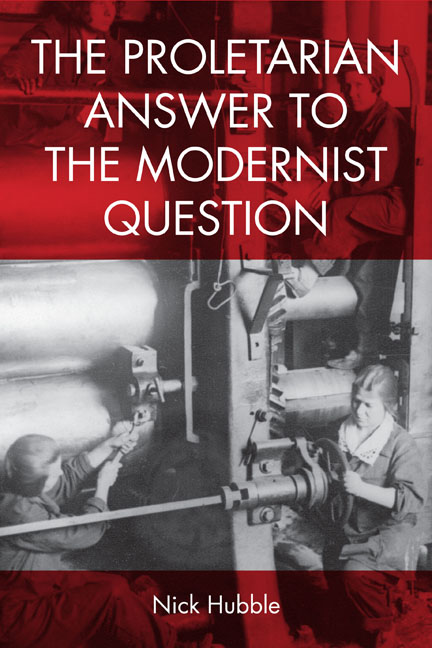Book contents
- Frontmatter
- Contents
- Acknowledgements
- Introduction
- 1 ‘Her Heritage Was that Tragic Optimism’: Edwardian Pastoral
- 2 ‘The Common Life’: Women and Men after the General Strike
- 3 ‘She Had Finished with Men Forever’: Lewis Grassic Gibbon's Grey Granite
- 4 ‘The Raw Material of History’: John Sommerfield's May Day
- 5 ‘None of That “My Good Woman” Stuff’: Outsider Observations
- Conclusion
- Bibliography
- Index
1 - ‘Her Heritage Was that Tragic Optimism’: Edwardian Pastoral
Published online by Cambridge University Press: 23 June 2018
- Frontmatter
- Contents
- Acknowledgements
- Introduction
- 1 ‘Her Heritage Was that Tragic Optimism’: Edwardian Pastoral
- 2 ‘The Common Life’: Women and Men after the General Strike
- 3 ‘She Had Finished with Men Forever’: Lewis Grassic Gibbon's Grey Granite
- 4 ‘The Raw Material of History’: John Sommerfield's May Day
- 5 ‘None of That “My Good Woman” Stuff’: Outsider Observations
- Conclusion
- Bibliography
- Index
Summary
Ford Madox Ford and the origins of proletarian literature
In ‘The Proletarian Writer’, Orwell argues that proletarian literature ‘started just before the last war, when Ford Madox Ford, the editor of the English Review, met D. H. Lawrence and saw in him the portent of a new class finding expression in literature’ (Orwell 2000a: 295).1 Ford's own account in Portraits from Life (1937), states that he first came across Lawrence through reading the manuscript of ‘Odour of Chrysanthemums’ and realising after the first paragraph that he had a genius who could write about the lives of the other half (see Ford 1987). Max Saunders suggests, following the argument of Lawrence's biographer John Worthen, that in reality they met before this occasion and that it was Ford who suggested to Lawrence that he should write from his knowledge of the mining community when writing ‘Odour of Chrysanthemums’ and his first play, A Collier's Friday Night: ‘Their subject-matter and use of dialect are almost unprecedented in his oeuvre, but characterize his major subsequent work’ (Saunders 1996: 325). Much could be said about this – not least that Lawrence, like those successful working-class writers who followed him, captured the reality of that experience not by recourse to his own authenticity but by recognising and then fully mapping out the extent of his own differences from working-class life. However, it can also be argued that the origins of what Orwell meant by proletarian literature lie in Ford's writing, itself, independently of Lawrence and it was precisely this already existing tendency which allowed him to ‘discover’ Lawrence.
There is an extraordinary passage in the first chapter of The Soul of London (1905) in which Ford describes how the successful internalisation of the city's ceaseless routine completes the process by which a typical young provincial is transformed into a Londoner: ‘Daily details will have merged as it were into his bodily functions, and will have ceased to distract his attention’ (Ford 2003: 10). London, Ford argues, is experienced unconsciously by its inhabitants: ‘a matter so much more of masses than of individuals’ that ‘it can only be treated as a ground bass, a drone, on top of which one pipes one's own small individual melody’ (Ford 2003: 11). Here, he repeats a metaphor from the book's ‘Introductory’, in which historic London is described as ‘like a constant ground bass beneath the higher notes of the Present’ (Ford 2003: 4).
- Type
- Chapter
- Information
- The Proletarian Answer to the Modernist Question , pp. 56 - 86Publisher: Edinburgh University PressPrint publication year: 2017



